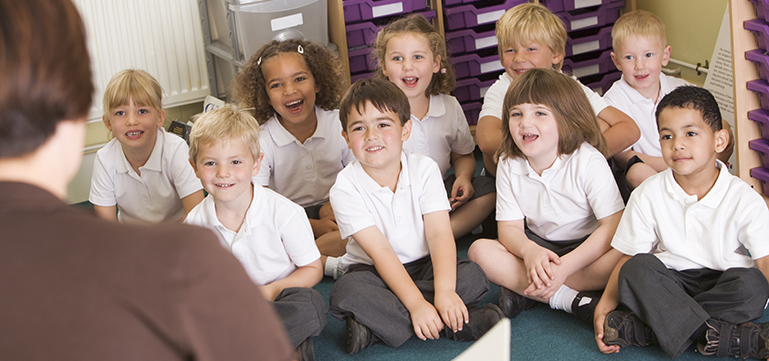Using assessment for learning to close gaps in pupils’ learning

Quick links:
Information about the school
Hendredenny Park Primary School is in a residential area on the outskirts of Caerphilly. The school has 249 pupils on roll including 39 who attend part-time in the nursery. There are eight single-age classes. Around 5% of pupils are eligible for free school meals, which is well below the average for Wales. The school identifies 12% of pupils as having additional learning needs, which is much lower than the national average. Very few pupils have a statement of special educational needs and very few are in the care of the local authority. Nearly all pupils are of white British ethnicity and come from homes where English is the main language. A very few pupils speak Welsh at home.
Context and background to sector-leading practice
As the school has low numbers of free school meals, leaders feel that it is important to provide sufficient challenge for the more able while ensuring that it meets the needs of all pupils. Following self-evaluation, leaders identified the need to streamline assessment for learning practices, and to improve consistency and responsiveness to close skills gaps across the Foundation Phase and key stage 2. They decided to utilise available technology and whole staff expertise in information and communication technology (ICT).
The deputy headteacher has undertaken the role of assessment co-ordinator since 2010. However all staff are engaged with high quality assessment for learning.
Description of nature of strategy or activity identified as sector-leading practice
All staff engage with assessment for learning by recording their observations of pupils’ progress and evaluate their performance on a shared electronic document accessed via Hwb. When staff identify a skills gap in pupils’ learning, this is recorded on a collaborative e-document within OneDrive, which all practitioners can access immediately. These formative observations enable class teachers to be responsive by planning immediate ‘close the skills gap’ interventions, allocating resources and staffing to address group and individuals’ needs. This is often on the same day and sets learners on a path to mastery.
Staff encourage Year 6 pupils, particularly the most able, to record their own ‘next steps’. If they find a skill challenging, they make a record and the teacher then prepares a choice of resources to support them, allowing them to work on a skill independently.
Pupils in Year 2 also choose pieces of work where they feel that they have demonstrated a particular skill well. They take photographic or video evidence and upload it to their own storage area within Hwb, using the J2E program. Pupils annotate their work, using the ‘learning conversation’ option. This provides opportunities for them to reflect on their learning and for teachers and pupils to have a long-lasting and meaningful dialogue in a variety of settings, including the home.
What impact has this work had on provision and pupils’ standards?
Pupils make very good progress in their literacy and numeracy skills. All staff working with a cohort have a clear understanding of pupil achievement and all pupils have individualised targets. When staff or pupils identify any issues, they usually address them promptly, the same day or in basic skills sessions the next day, therefore maximising pupils’ learning opportunities and enabling them to engage fully in the next step of their learning journey.
The school is consistently in the top 25% of similar schools for literacy and numeracy, and pupil performance at the higher level is above the national average. Pupil Attitudes to Self and School (PASS) questionnaires provide evidence that they engage well in their own learning and are becoming ambitious and capable learners.
How have you shared your good practice?
The school has shared this good practice widely through presentations, demonstrations and workshops in a variety of settings:
• The regional consortium’s ICT co-ordinator’s network meeting
• Caerphilly information technology ‘Good Practice’ event
• Peer schools/Green school review
• Cluster
• The regional consortium’s maths ‘Good Practice’ event
• Pioneer schools marketplace
• Partnership schools
• Governors’ meetings